Computing & IS
Mak Council commends CoCIS for impact; Seeks Interventions to Digitalize University processes
Published
3 years agoon
By
Jane Anyango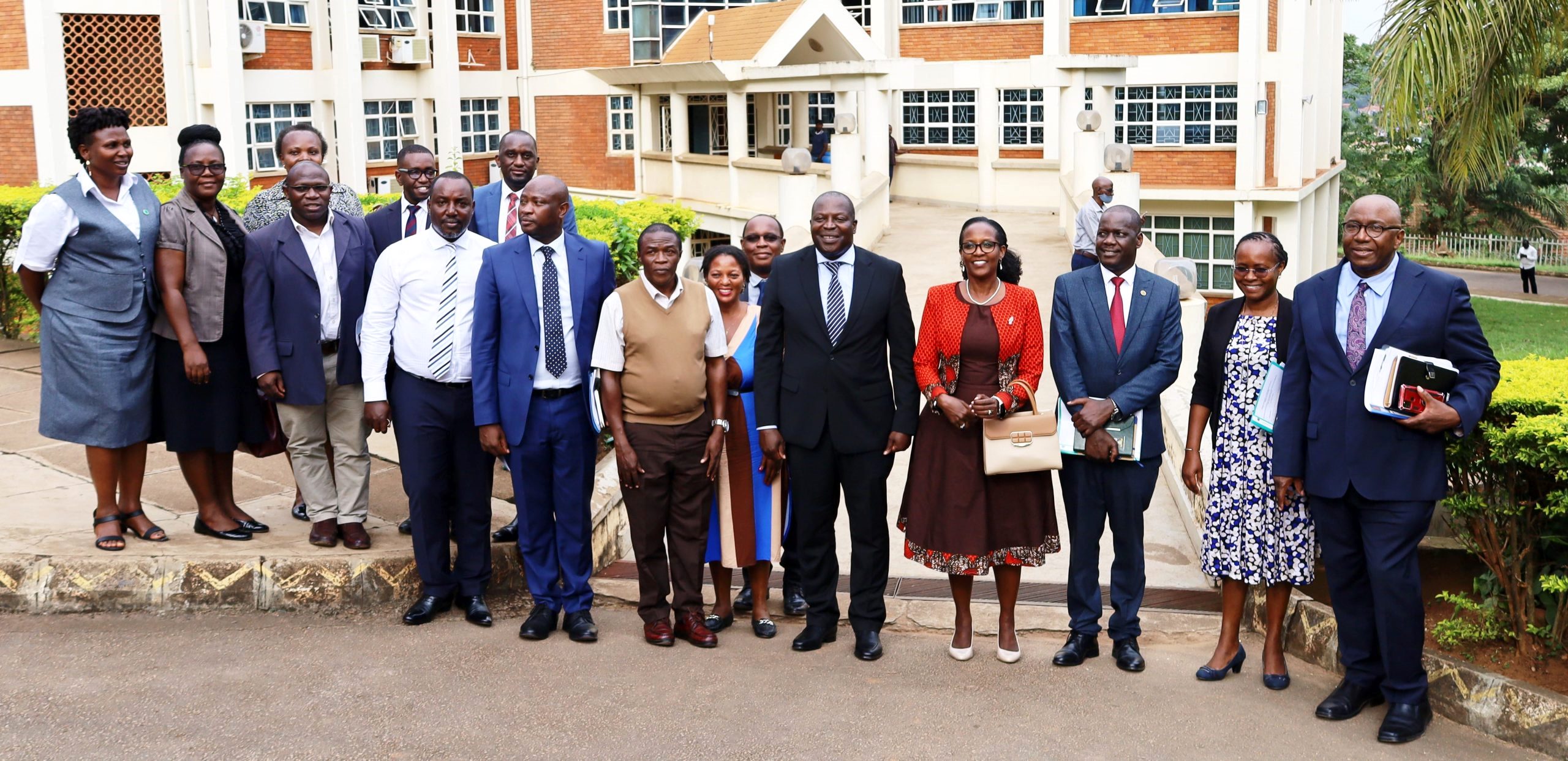
Council Members led by the Chair Mrs. Lorna Magara have commended the College of Computing and Information Sciences (CoCIS) for the practical training and churning out graduates that have made immense contribution to the digitalization of government, private institutions and businesses processes.
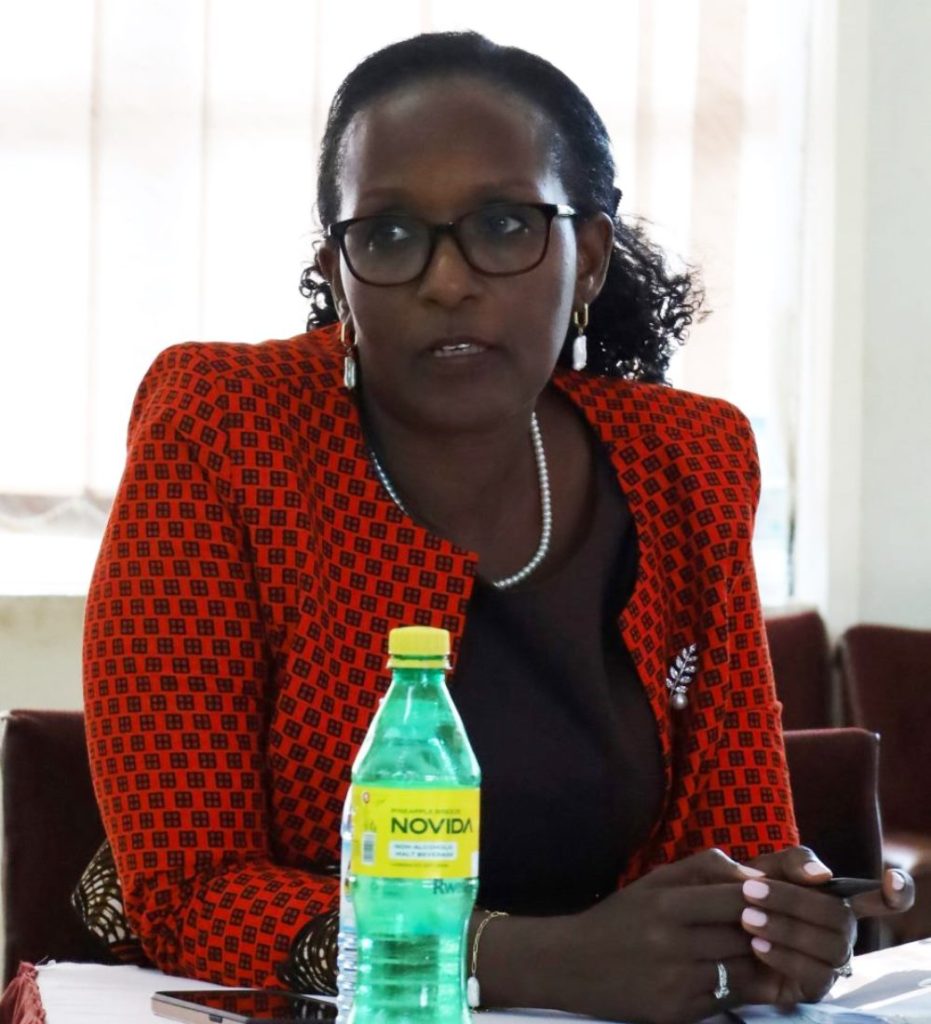
The University Council now wants CoCIS to tender in a proposal through management on how the college can help the digitalization of the university processes including students’ records, attendance, information system and, a feedback system
The college leadership welcomed the task and pledged to revitalize some of the applications it had evolved, for example, the prototype for attendance system and others and to follow up with Council Chairperson.
Council members visited CoCIS on Thursday 3rd March 2023 to familiarize themselves with what the college does, how it does, the key milestones and its contribution to the vision of Makerere University among others.
In a meeting held at the conference, room in Block A the Principal CoCIS Prof. Tonny Oyana highlighted how the college was contributing to the university’s Strategic Plan, Uganda’s National Development Plan, the Human Resource Development plan and Vision 2040.
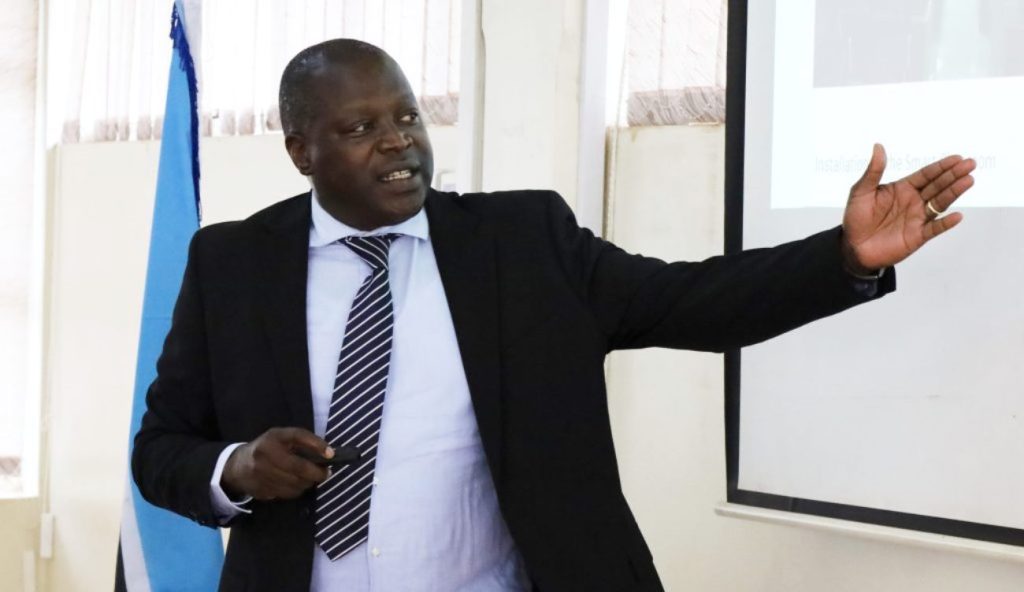
Professor Oyana highlighted the success story in research, innovations and in teaching by building cases where the college has been successful in research like Google that is helping the college in transforming Uganda and the whole of East Africa through the AirQo project.
AirQo is project led by Prof. Engineer Bainomugisha that has developed devices that measure the air quality. Prof. Bainomugisha has worked with several government agencies like NEMA, KCCA and across borders in many other African cities where the devices have been installed.
Other innovations highlighted include the smart bee hive for monitoring bees in East Africa, the students Ntaasa emergency system, and the devise to aid the blind to move without aid that have won international recognitions and awards.
“The contribution we make is in automation and building applications that are relevant in different sectors of agriculture and environment health, transport and businesses and general services and areas important in the country.
We are going to do intentional targeting for desired outcomes that meet our strategic goals and those of the university, and the country”, Professor Oyana asserted.
Prof Oyana appreciated Council members for Identifying and amplifying the message of the work done and expressed gratitude for the positive feedback from council.
“We are grateful for the visit. Whenever a visitor comes and gives feedback, it is good because it is a mirror that reflects what we need to do better and in which areas we need to improve and we are committed to the vision of Makerere of a research-led university”, Prof. Oyana said.
Council members noted that generally there is low appetite for Information Technology in Uganda partly due to high illiteracy and implored the college to come up with interventions that can help the university and country to fight vices such as corruption on grounds that many of the government initiatives have not succeeded.
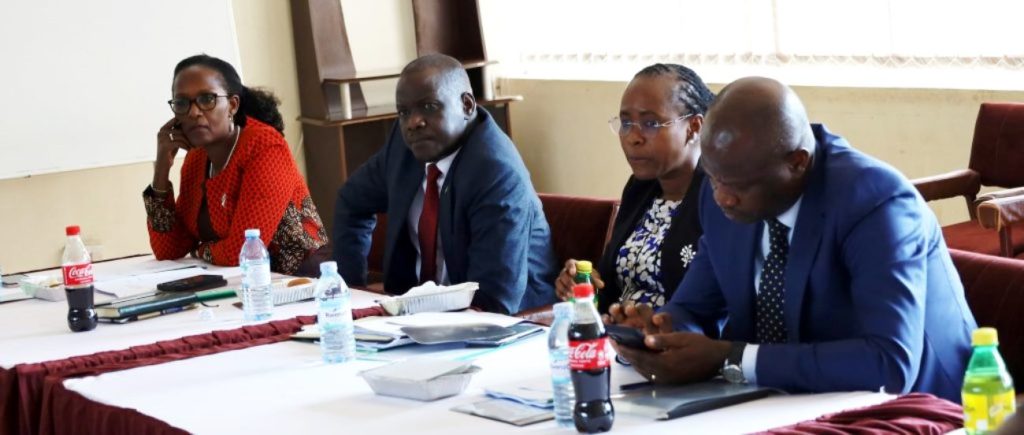
Council members also implored CoCIS to utilize its space and address the onlinisation to promote distance and online education in Uganda.
The Chairperson Council Mrs. Lorna Magara underscored the role of technology and the competencies in the college that must be tapped into.
“We want to see a way to track the process of teaching and learning, set a system that can help monitor the quality of teaching that take place in the university in terms of student’s records, results, examinations, a system that tracks submitted marks and where they are. We need a system that can help us to get students feedback in real time” Mrs. Magara submitted.
Mrs. Magara asked the college to submit a proposal to council through management to Council.
“Present a proposal on how you are going to engage with the university community. We will do our best to support you because digitalization is one of the core areas of Council and the college is critical. We want to see increased level of visibility and engagement with the university and management”, Mrs. Magara emphasized.
The Head, Department on Computer Science Assoc. Prof. Engineer Bainomugisha reported that the School has worked with government institutions in Africa and developed tools that measure air quality.
Prof. Bainomugisha explained that the role of the school is not only to help the university improve the university processes but also help government and other stakeholders address their digital needs.
“Practically where the future is pointing, a lot of services are going digital. We request for support for training the human resources to enhance practical teaching at the university”. Prof. Bainomugisha requested.
The Dean School of Computing and Informatics Technology Dr. Joseph Balikuddembe said, although the college has the expertise and ready to support the digitalization process, there is need for management to streamline the mandate of university units.
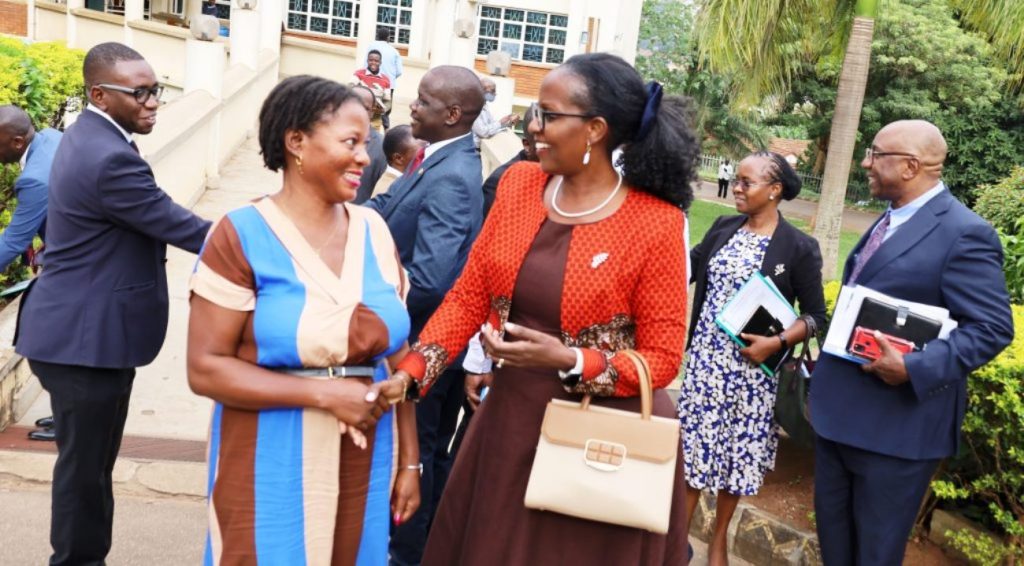
He clarified that for a harmonious working relation, the boundaries for the College of Computing and Information Sciences and that of the Directorate for ICT Support (DICTS) need to be clear to avoid overstepping and going to loggerheads.
You may like
-


Simon Mungudit: Mak’s Best Performing Male Science Student & Rising Star in Petroleum Geoscience
-


EU Earmarks Shs19.8bn for 15 Joint PhD Scholarships in Health, Environment Research
-


Call For Applications: MakNCD Masters and PhD Training Opportunities
-


Press Statement: Makerere University Congratulates Former Staff and Students on Successful Election to Public Office
-


Mak Hosts NCHE Competence-Based Education Standards Validation Meeting
-
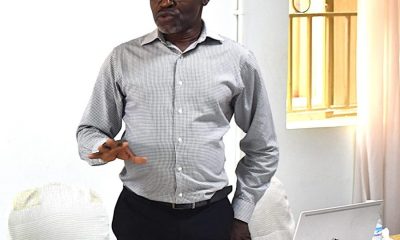

Enhancing Data Quality: NutriFishPlus Research Assistants Retooled Ahead of Baseline Survey
Computing & IS
CoCIS CIPSD Short Courses Jan-Mar 2026
Published
2 weeks agoon
January 19, 2026By
Mak Editor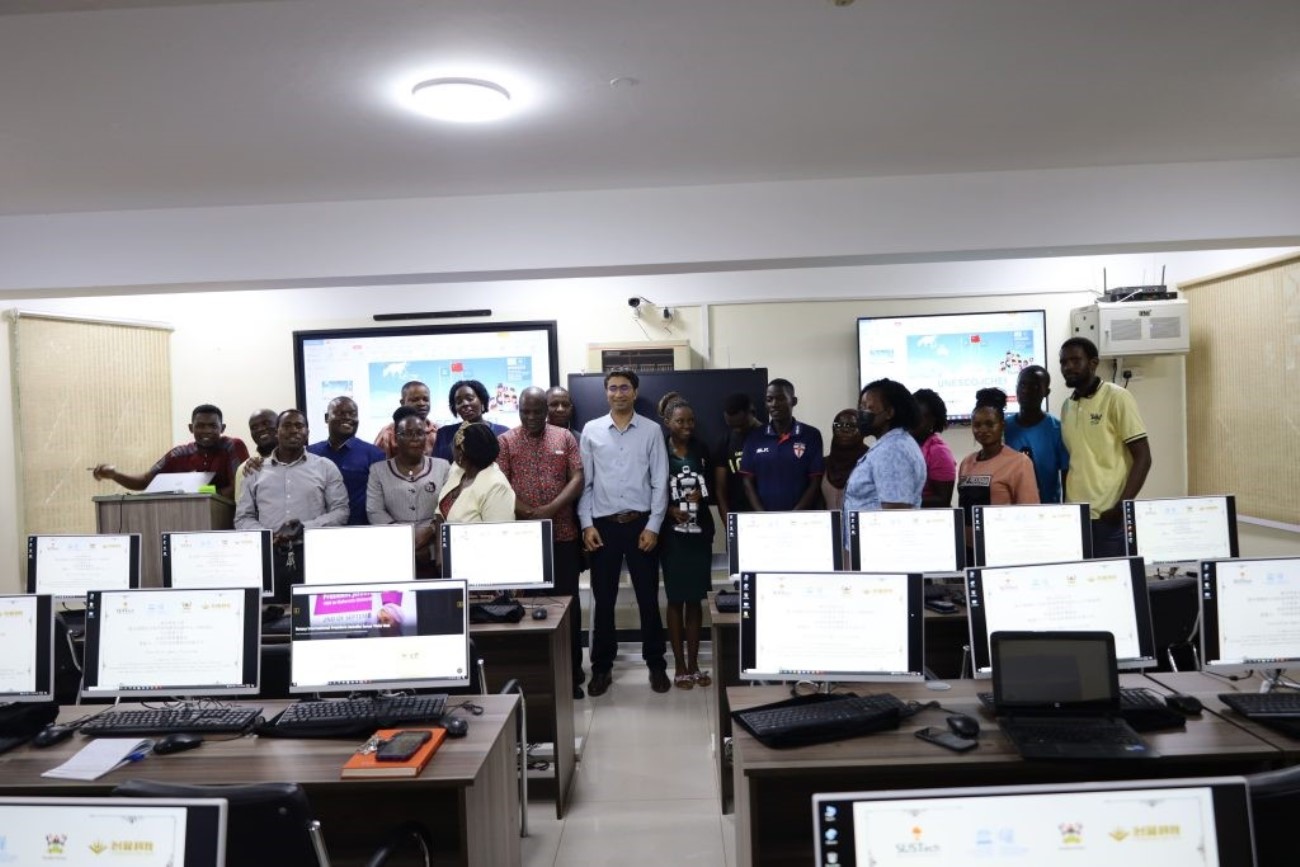
Makerere University College of Computing and Information Sciences (CoCIS) is the main ICT Training, Research and Consultancy Centre in Makerere University. The College has six Academic departments comprising of the Department of Computer Science, Department of Networks, Department of Information Technology, Department of Information Systems, Department of Library and Information Sciences, and the Department of Records and Archives management.
In addition to the mainstream degree programmes, CoCIS has a specialized Center for Innovations and Professional Skills Development (CIPSD) which delivers state-of-art training in ICT e.g. the Cisco Networking Academy for Cisco related courses, the Microsoft IT Academy Program for Microsoft related courses, International Computer Driving License course, Oracle Certified Training center for Oracle, Linux and Unix Training center. CIPSD also offers Machine Learning, Big Data Analytics, Data Science, Artificial Intelligence (AI) and Ethical Hacking as online courses. The College is an authorized Testing center, operating under PearsonVUE and Kryterion. Listed in the table (see download below) are the courses currently offered at the Center with their next start dates, duration, and cost.
- All courses are at affordable fees catering for Students, Vacists, Professionals and
- Anyone who wants to start a career in ICT or polish his/her ICT skills.
Contact Information
E-mail: psd.cis@mak.ac.ug
Tel: +256 782 512 897 +256 752 779964
URL: https://cocis.mak.ac.ug/cipsd/
Computing & IS
Makerere University and SoonPay Sign Landmark MoU to Champion Blockchain Innovation and Financial Inclusion Across Africa
Published
2 months agoon
December 9, 2025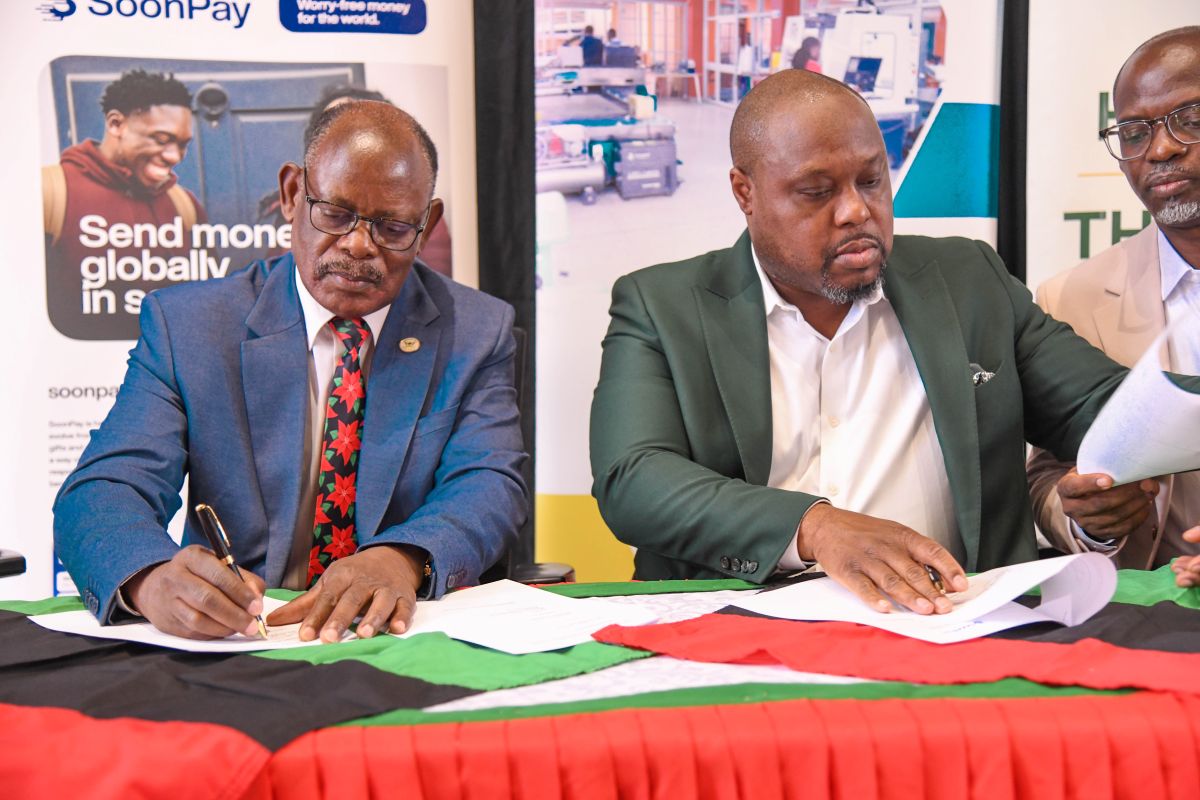
On Saturday 6th December 2025, Makerere University entered into a ground-breaking partnership with the U.S.-based fintech company SoonPay, marking a major breakthrough in Uganda’s push to integrate emerging technologies into research, innovations, higher education and national development.
The Memorandum of Understanding was signed by the Vice Chancellor of Makerere University, Prof. Barnabas Nawangwe and Mr. Frantz Morency, Chief Executive Officer of SoonPay L.L.C, during the Makerere University Financial Innovation Day, a high-energy event that brought together over 800 students, faculty, industry partners, and technology leaders.
The MoU institutionalizes the collaboration of Makerere University through the Makerere University Technology and Innovation Centre and SoonPay LLC. The signing ceremony was witnessed by Dr. Cathy Ikiror Mbidde-Manager of Makerere University Technology and Innovation Centre and Ms. Vuyani Jones-Blockchain Infrastructure Manager.
Organized by the Makerere University Technology and Innovation Centre (MUTIC) in partnership with SoonPay, the event ran under the theme “Innovation and Financial Inclusion for a Secure Future.” It featured keynote speeches, panel discussions, live demonstrations, and the signing of a Memorandum of Understanding (MoU) that will usher in a new era of blockchain training, research, and innovation at Uganda’s premier university.
The event was supported by several partners, including the National Social Security Fund (NSSF), the Uganda Blockchain Association, the National Planning Authority (NPA), Prudential Uganda, and other technology and financial sector stakeholders.
A Strategic Partnership to Transform Africa’s Digital Landscape
The newly signed MoU between Makerere University and SoonPay is expected to unlock a broad set of opportunities for students and academic staff. These include blockchain education and certification, joint research projects, internships and apprenticeships, the development of new financial inclusion tools, and the integration of emerging technologies into existing academic programs.
SoonPay’s entry into Uganda is part of a larger vision to expand blockchain-driven solutions across Africa—a continent its executives say has historically been excluded from global technological revolutions.

Impressed by the overwhelming numbers of students who filled the Yusuf Lule Central Teaching Facility Auditorium to the brim, the Vice Chancellor, said: “Dear students, by choosing to stay on campus, on a Saturday, and after completing your examinations, you have demonstrated your willingness to learn and embrace the blockchain technology as well as emerging technologies in general.”
Stating that blockchain technology is the future for Africa, the Vice Chancellor challenged the students to take charge of Africa’s digital transformation.
“You are the people to emancipate Africa from marginalization,” he declared. “What will liberate our continent is not politics—we have done too much of that. It is education, research, innovation, and technology.”
Prof. Nawangwe delivered a sweeping historical reflection, tracing Africa’s technological setbacks to the destruction of its civilization over several centuries.
“For 400 years, Africans were taken away as slaves. For another 200 years before that, our lands, knowledge systems, and technologies were disrupted,” he said. “This represents around 600 years of destruction and marginalization of African civilization.”
He urged students not to miss the opportunity that modern technologies such as blockchain and artificial intelligence present.
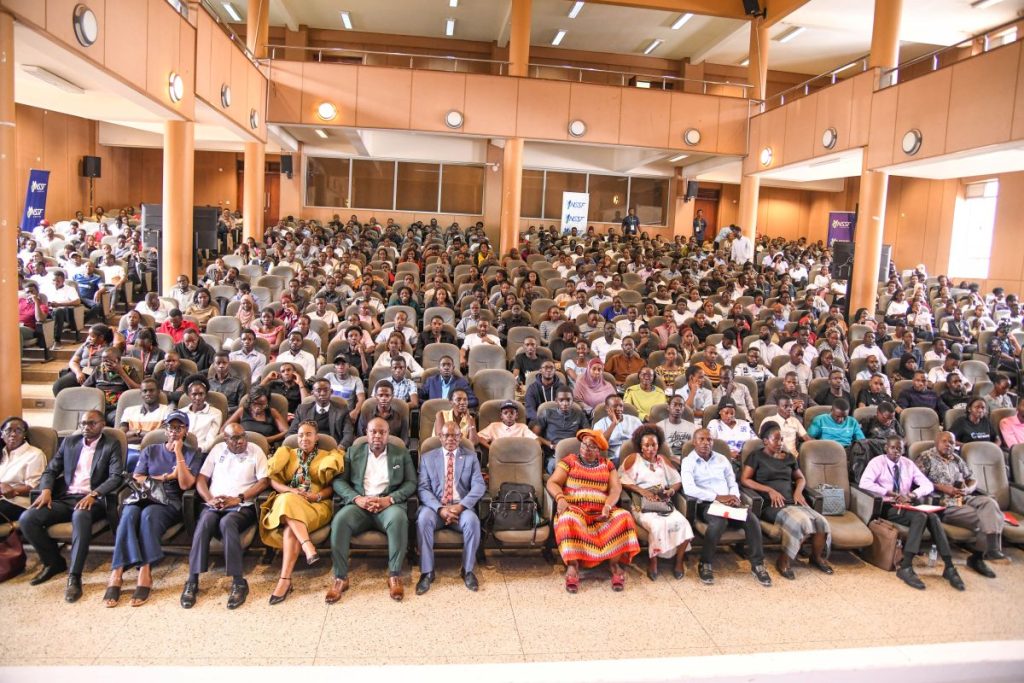
“We are lucky to be living in an era where Africa is free,” the Vice Chancellor said. “My hope is that we do not wait another 600 years to take advantage of this freedom. The most important resource we have is not minerals; it is human resources—you, the youth.”
Prof. Nawangwe reminded students that Makerere’s reputation as the “intellectual capital of Africa” places immense responsibility on their shoulders.
“You are among the very few Ugandans privileged to study at Makerere University. University graduates are not supposed to wait for jobs—you are the ones expected to create them,” he said.
Why Blockchain? Transparency, efficiency, and global competitiveness
The Vice Chancellor highlighted the transformative potential of blockchain technology, especially in improving financial systems—a sector he described as the backbone of any modern economy.
“Without efficient financial systems, nothing else works,” he said. “Blockchain offers transparency, reduces fraud, and minimizes corruption. If applied properly, it could transform how we manage finances, education, and even our natural resources, including the oil that Uganda is about to exploit.”
He added that Makerere’s students are already demonstrating global competitiveness in innovation, winning international competitions and creating products across multiple disciplines.
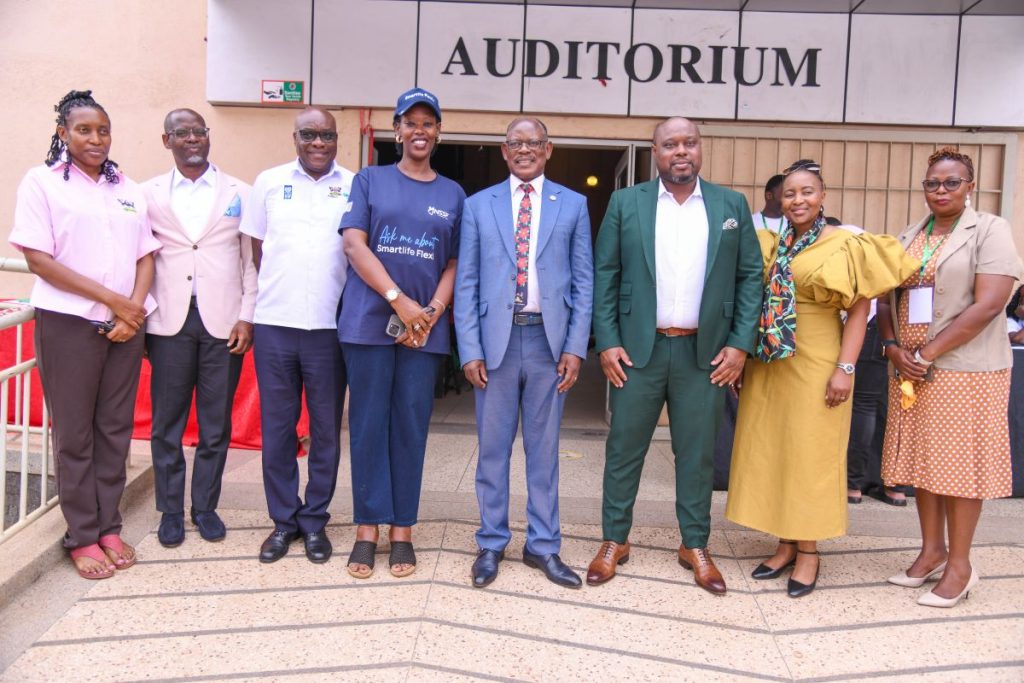
“The brains are here,” he said. “What we need is exposure to opportunities and technologies that will help you turn your ideas into impactful solutions.”
In a passionate keynote address, SoonPay CEO, Mr. Frantz Morency underscored why his company chose Uganda as its launchpad for blockchain adoption in Africa.
“As the Professor said, we have been excluded for more than 400 years,” he stated. “Even though we’re an American company, we know our roots. Look around the SoonPay team—you will see yourselves. We chose Uganda intentionally.”
Mr. Morency pointed to Africa’s dismal participation in the global blockchain economy. “In the U.S., blockchain generates $2.6 billion—61.7 percent of the world’s share. The rest of the world generates $1.6 billion. And Africa, just $14 million, or 0.33 percent,” he said. “That is unacceptable.”
He attributed the gap not to a lack of interest among young Africans, but to a lack of opportunity. “You want to learn—what you lacked was opportunity,” he said. “With the support of Professor Nawangwe, Dr. Cathy Ikiror Mbidde, and Dr. Margaret Nagwovuma, SoonPay wants to bridge that gap in education, technology, and economic opportunity.”
Mr. Morency also shared his personal journey, connecting his Haitian background to the aspirations of African youth.
“Many of you may see me as ‘the guy in the green suit,’ but I come from a small island—Haiti,” he said. “My mother never finished first grade; my father never finished second grade. What they gave me was integrity, work ethic, and the determination to seize opportunities when they came.”
He urged students not to seek opportunities abroad out of desperation, but to build meaningful careers in Africa. “Africa does not need to lose its talent. Why can’t you build here? Why can’t businesses, innovation, and prosperity thrive here?” he said. “Educate yourselves. Build. Create. Grow.”
A milestone for Makerere and Africa
Dr. Cathy Ikiror Mbidde, Head of the Makerere University Technology and Innovation Centre (MUTIC), described the event as a “major milestone” in the institution’s evolution.
“We are here to witness one of the key emerging technologies and to reflect on how universities can embrace such milestones,” she said. “Everyone has a role to play in transforming our lives through research, ideas, and projects.”
She thanked SoonPay for choosing Makerere University, noting that students had been “instrumental” in pushing for blockchain education.
“You have been constantly asking questions, pushing us, and showing deep curiosity about blockchain. Today, we finally have answers,” she told the students.
Beyond the speeches, the event showcased SoonPay’s blockchain infrastructure, student-led innovations, and a roadmap for integrating digital finance tools into university programs. Partners such as NSSF emphasized the importance of preparing young people for a digital future.
With the MoU now in force, Makerere University is positioning itself as a regional hub for blockchain education, research, and innovation. The partnership with SoonPay aims not only to train students but to shape Uganda’s—and Africa’s—next generation of tech leaders.
Computing & IS
71 Graduate Under India–Uganda e-VBAB & Amity University Collaboration
Published
3 months agoon
November 21, 2025By
Jane Anyango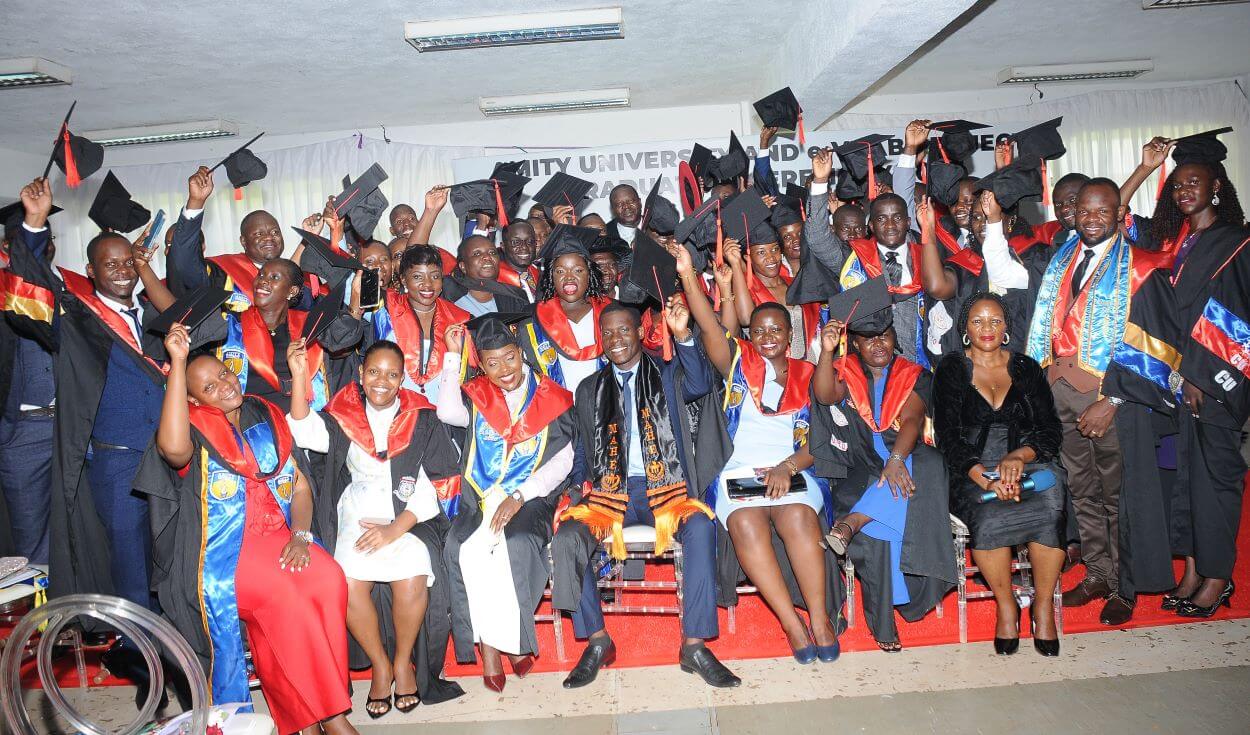
Kampala, Uganda
21st November 2025
Makerere University’s College of Computing and Information Sciences (CoCIS) has graduated 71 students under Phase 2 of the e-VBAB Project, a collaboration between Amity University in India and Makerere University. The ceremony, held at Block B CoCIS, was presided over by Principal Prof. Tonny Oyana on behalf of the Vice Chancellor.
The program, funded by the Government of India, offered 100 percent scholarships to Ugandan students through the Pan-African e-Network Project, which provides tele-education and tele-medicine services across 48 African countries. Uganda signed onto the initiative in 2019, and more than 1,700 Ugandan students have benefited since its inception.
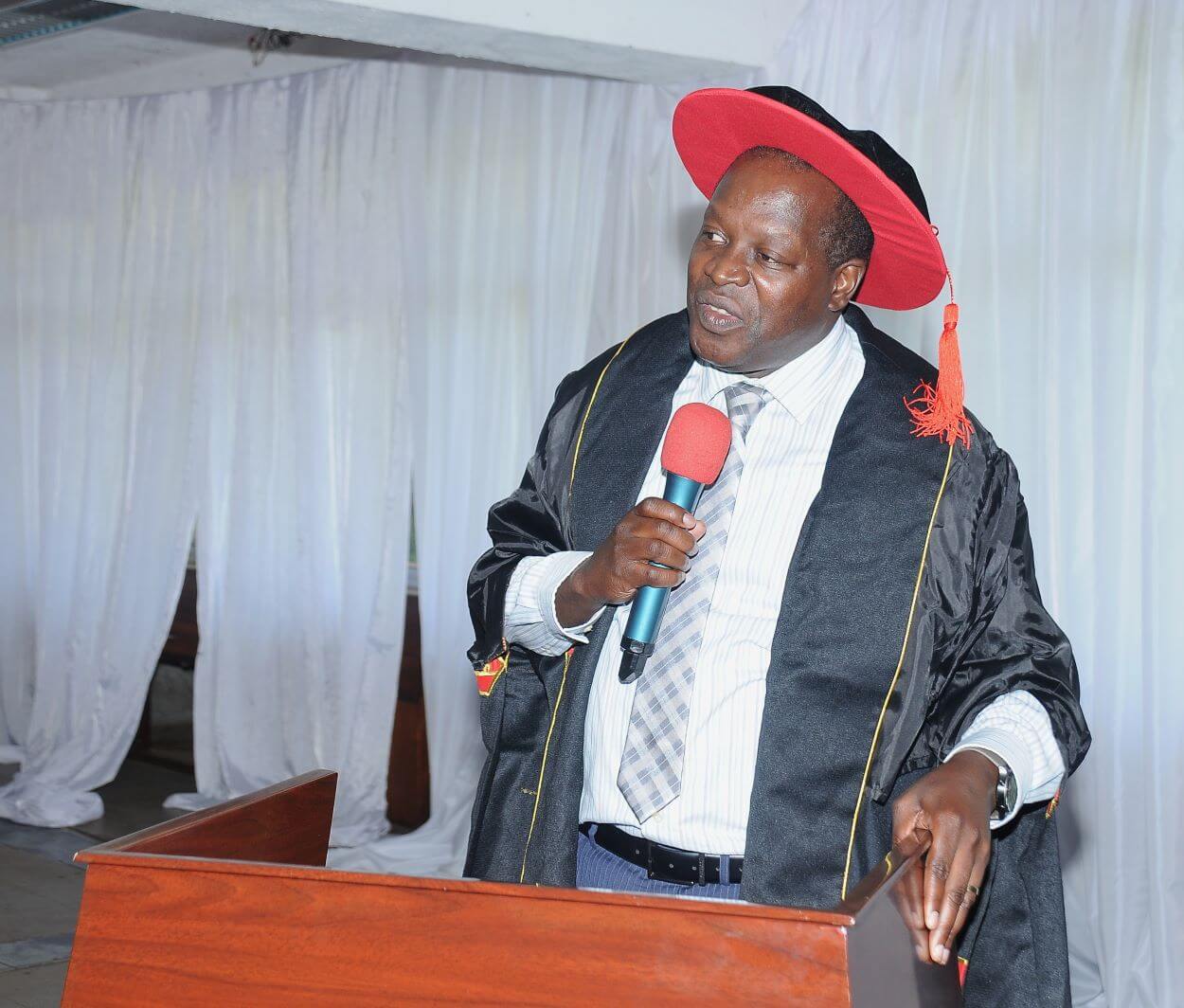
In his remarks, Prof. Oyana praised the efforts of program coordinators and support staff, singling out Madam Claire for her dedication. “Coordinating things remotely from other countries is not easy, but you have been humble enough to ensure that these graduates have seen the light,” he said. He also thanked custodians and security personnel who facilitated exams and weekend access for students.
Prof. Oyana emphasized the importance of completing studies, noting that many students remain pending. “Please encourage your friends because there’s no reason not to finish. You honor us, honor the government of India, the taxpayers, by completing,” he urged. He reminded graduates that their degrees are recognized by Uganda’s National Council for Higher Education and warned against fraudulent claims. “Only hard-earned degrees are recognized. There’s no easy way out,” he cautioned.
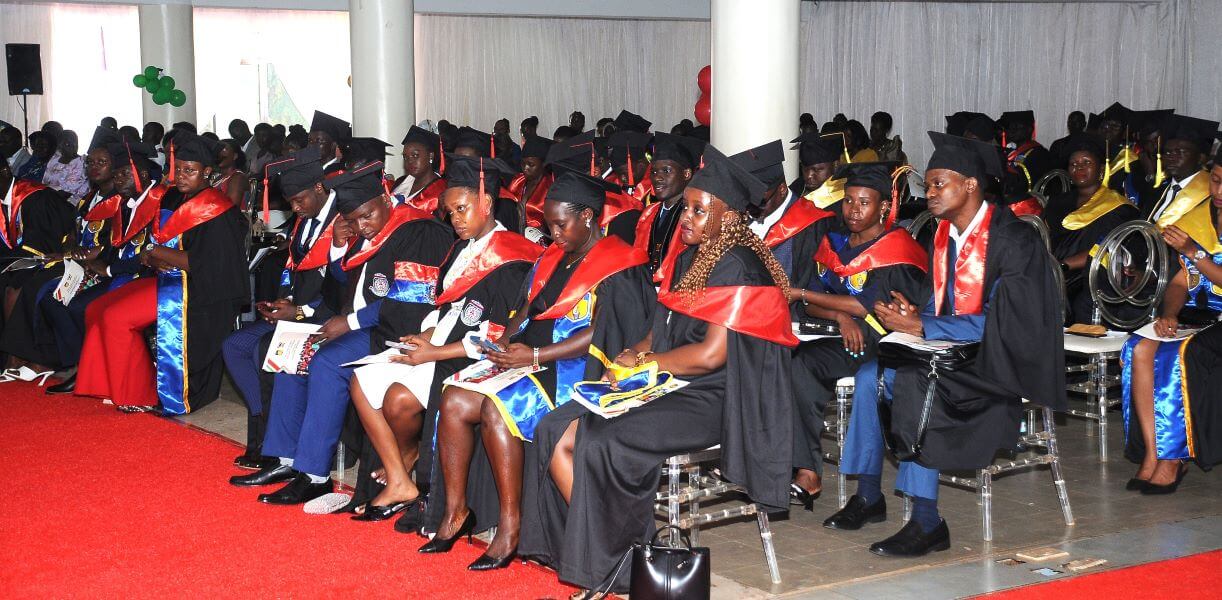
Reflecting on the program’s history, Oyana described the graduates as “COVID children” who persevered through the pandemic. He also offered career advice, stressing humility, confidence, and attitude. “Having a good attitude does not cost money. It is free. And it’s good for your heart. Happiness is not sold anywhere,” he said. He encouraged graduates to create opportunities through entrepreneurship and to value professional networks.
The graduation marked the conclusion of the e-VBAB collaboration, with Prof. Oyana reminding students of their unique place in history as the first and only cohort under the Makerere–Amity partnership. “You are the first cohort. Everybody looks upon you wondering, will you make it? History will write down that we are the only cohort,” he said.
Prof. Oyana Urges Graduates to Pursue Gifts, Confidence and Positive Attitudes
Prof. Tonny Oyana urged graduates to embrace humility, confidence, and entrepreneurship as they prepare for life beyond academia, warning that degrees alone are not a guarantee of success.
Oyana reflected on his career in academia. “But I’m still here, surviving and kicking. I have been with academia technically from 1993. I have not changed career. I grew my career through academia,” he said, noting that while psychology suggests people change careers five times, he has remained committed to one path.
He cautioned against unrealistic ambitions, particularly in politics, referencing Uganda’s crowded presidential race. “Not everybody can be president. So exercise your dreams with some caution. Don’t waste your time in an initiative that you know will not break through,” he advised, urging graduates to instead pursue areas aligned with their spiritual gifts and natural talents.
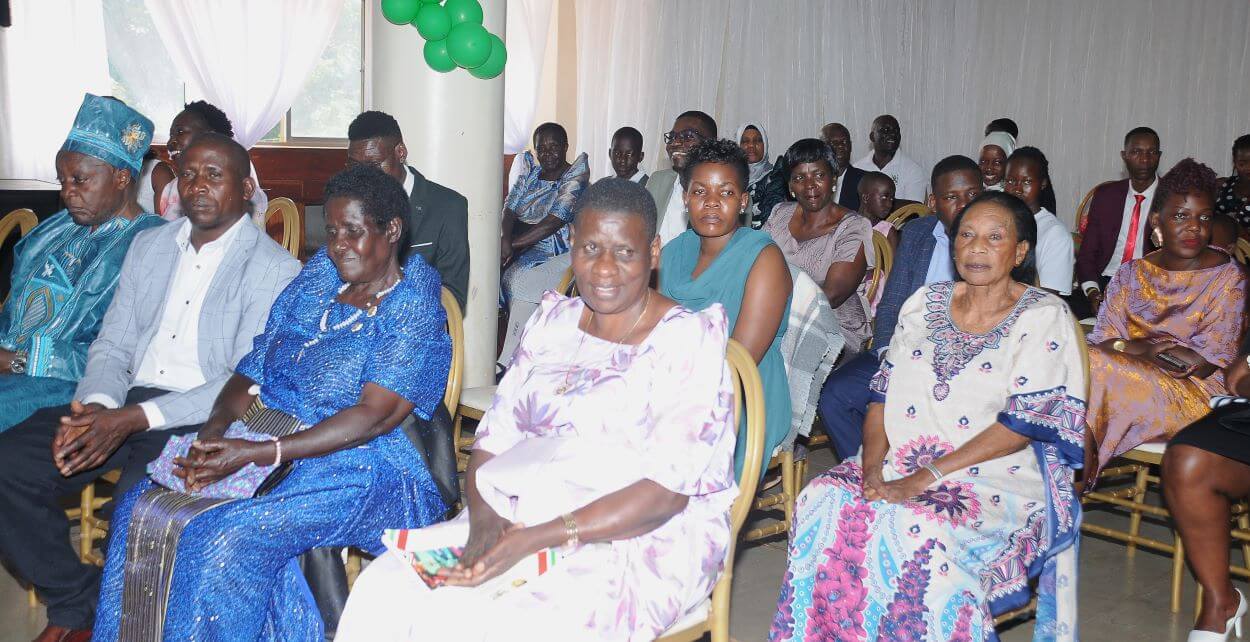
Turning to the job market, Prof. Oyana highlighted the challenges of employment. “In order to get a faculty job, you had to put in 40 applications. Now, I think it has doubled. These days, there’s no courtesy. They don’t even reply to your application,” he said. He encouraged graduates to create their own opportunities through entrepreneurship, stressing that education provides knowledge, skills, and values.
He underscored the importance of attitude, describing it as a free but powerful tool. “Having a good attitude does not cost money. It is free. And it’s good for your heart. Happiness is not sold anywhere. So, you make your attitude positive, things will be positive,” he said. He warned that arrogance and poor manners can sabotage success, urging students to practice humility both in professional and personal life.
Prof. Oyana also emphasized confidence and self-presentation. “You are your own moving advert. Don’t sabotage your own confidence. Be very clear about what you bring to the table,” he said, advising graduates to rehearse their self-introductions and prepare thoroughly for interviews.
Finally, he highlighted the value of professional networks, recalling how his PhD cohort became a lifelong support system. “It became my network for success. Please keep your network. Even if you haven’t gotten much in your life, face it,” he said.
The Principal’s remarks blended personal anecdotes with practical advice, reinforcing the message that success requires humility, preparation, resilience and strong networks beyond academic achievement.
CiPSD Director Nalubega Praises Teamwork, Urges Graduates to Believe in Themselves
The Director of the Center for Innovations and Professional Skills Development (CiPSD), Ms. Barbara Nalubega, praised graduates and staff for their teamwork and resilience .
Addressing the graduates, Nalubega said the success of the program was achieved despite challenges. “I’m very humbled that amidst all the same challenges, we have built rapport, worked as a team, and here we are. This is the day that the Lord has made,” she remarked.
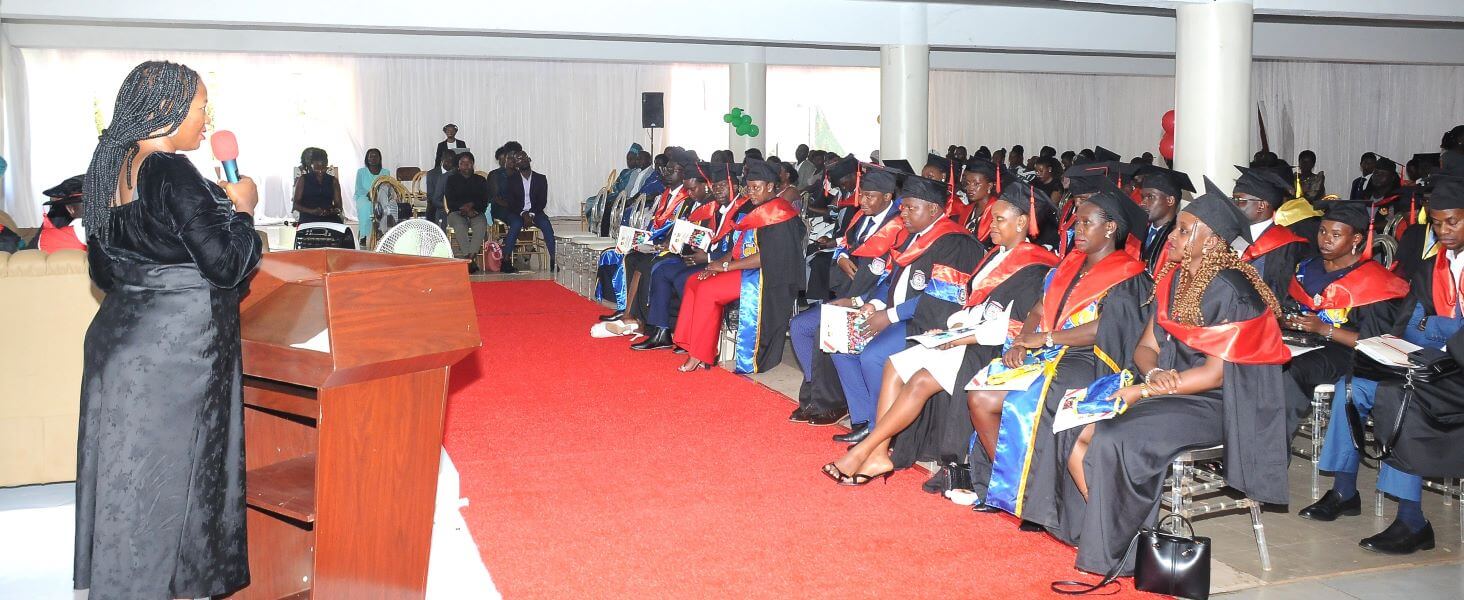
She thanked graduates for their encouragement and support, noting that she had received hundreds of messages of gratitude during the course of the program. She singled out several students, including Damali, Fatuma, Josh, Sam, Paula, Sheila, and Michael, for their commitment, and extended special appreciation to Dan, who, though not part of the graduation, sent her flowers in recognition of her efforts.
Nalubega also acknowledged her colleagues and partners who played key roles in the ceremony’s success. She commended Claire, the e-learning coordinator, Annette, who managed gowns for graduates, and Brenda, the supplier, for their dedication. She revealed that she personally staked two million shillings in the Bank to ensure latecomers were accommodated. “This wouldn’t have been possible without you making payments in the bank on time,” she said.
Nalubega emphasized humility and accountability, apologizing to those who may have been hurt along the way. “Apologizing to you is not an uphill task for me. When I make a mistake, I usually apologize,” she stated.
She concluded by encouraging graduates to believe in themselves and the transformative power of education. “Through education, the son of a farm or mine worker can become the president of a great nation. Yes, believe in yourself,” she said, citing Nelson Mandela’s rise from humble beginnings to the presidency of South Africa as an example.
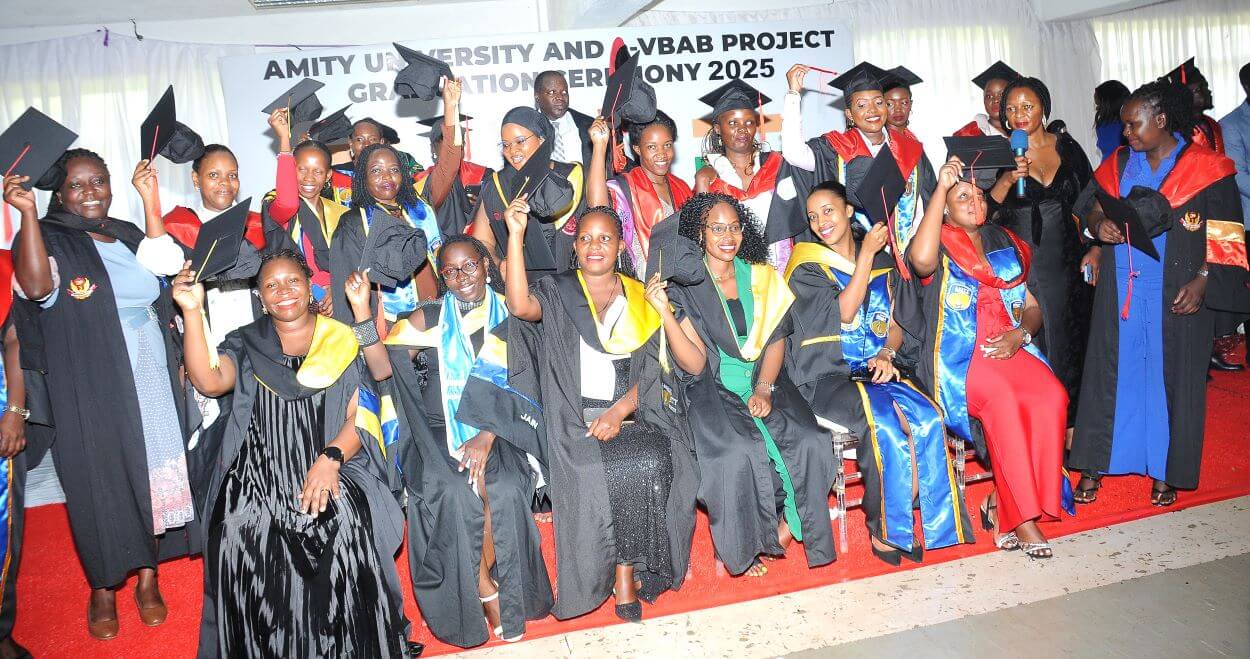
The Director’s message underscored the importance of teamwork, resilience, humility, and self-belief as graduates embark on their next chapter.
Graduates Laud Resilience, Faith and Global Support
Graduates under the e-VBAB Project and Amity University–Makerere collaboration celebrated perseverance, faith, and international partnerships as they addressed the audience during the) graduation ceremony.
Representing the e-VBAB project graduates, Isoke Gloria, a former student of Manipal Academy of Higher Education (MAHE), expressed gratitude for the milestone. “It’s not been easy, but we thank God so much for bringing us to this day. May His name be glorified,” she said. Gloria praised the scholarships provided under the project, noting, “We would never have made it here without their support. They’ve made our academic journey so easy and a success.” She also commended Makerere University and coordinator Barbara Nalubega for their encouragement and commitment.
Duncan Nagenda, an Amity University master’s student, highlighted the challenges of online learning, describing it as demanding and often unpredictable. “Online education is not a joke. If you ask me, it should be added on the list of a thousand ways to die,” he said, recalling internet disruptions and strict exam protocols. He acknowledged the support of lecturers in India, parents, and Makerere staff, particularly e-learning coordinator Claire. “To my class of 2025, may your future be filled with purpose, may your opportunities be abundant, and may your journey ahead be guided by excellence and wisdom,” he concluded.
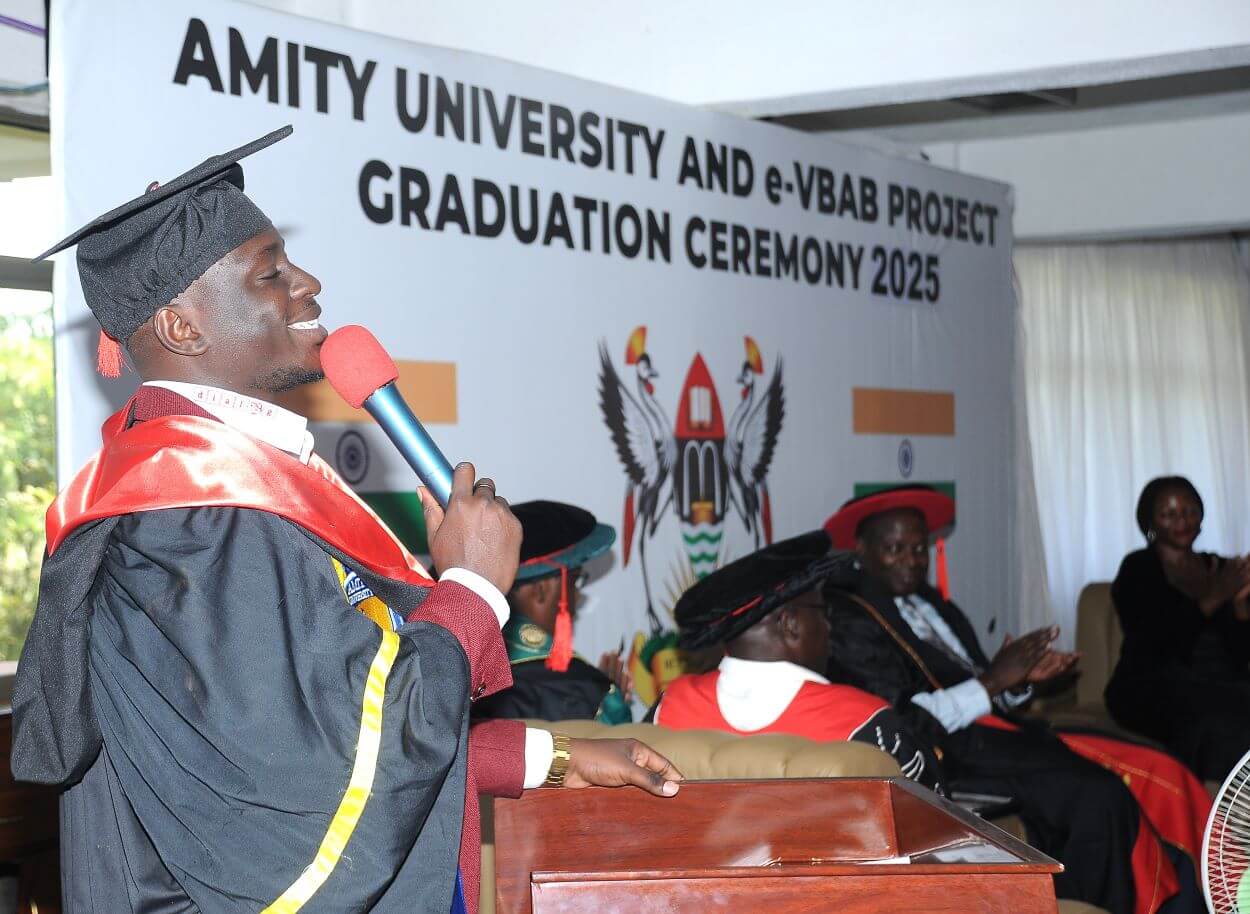
Joshua Mugabo, also from Amity University, emphasized faith and resilience. “Who would not have been here without God? It is His grace that carried us, His strength that sustained us, and His favor that opened doors we once feared were closed,” he said. Mugabo reflected on hardships such as blackouts, poor internet, and family responsibilities, but celebrated the resilience gained. “A degree might put something in our hand, but education puts something in your heart. And today’s world urgently needs what is in our hearts,” he added. He paid tribute to the Government of India, Makerere University, and mentors in Uganda and India, invoking Nelson Mandela’s words: “Education is the most powerful weapon you can use to change the world.”
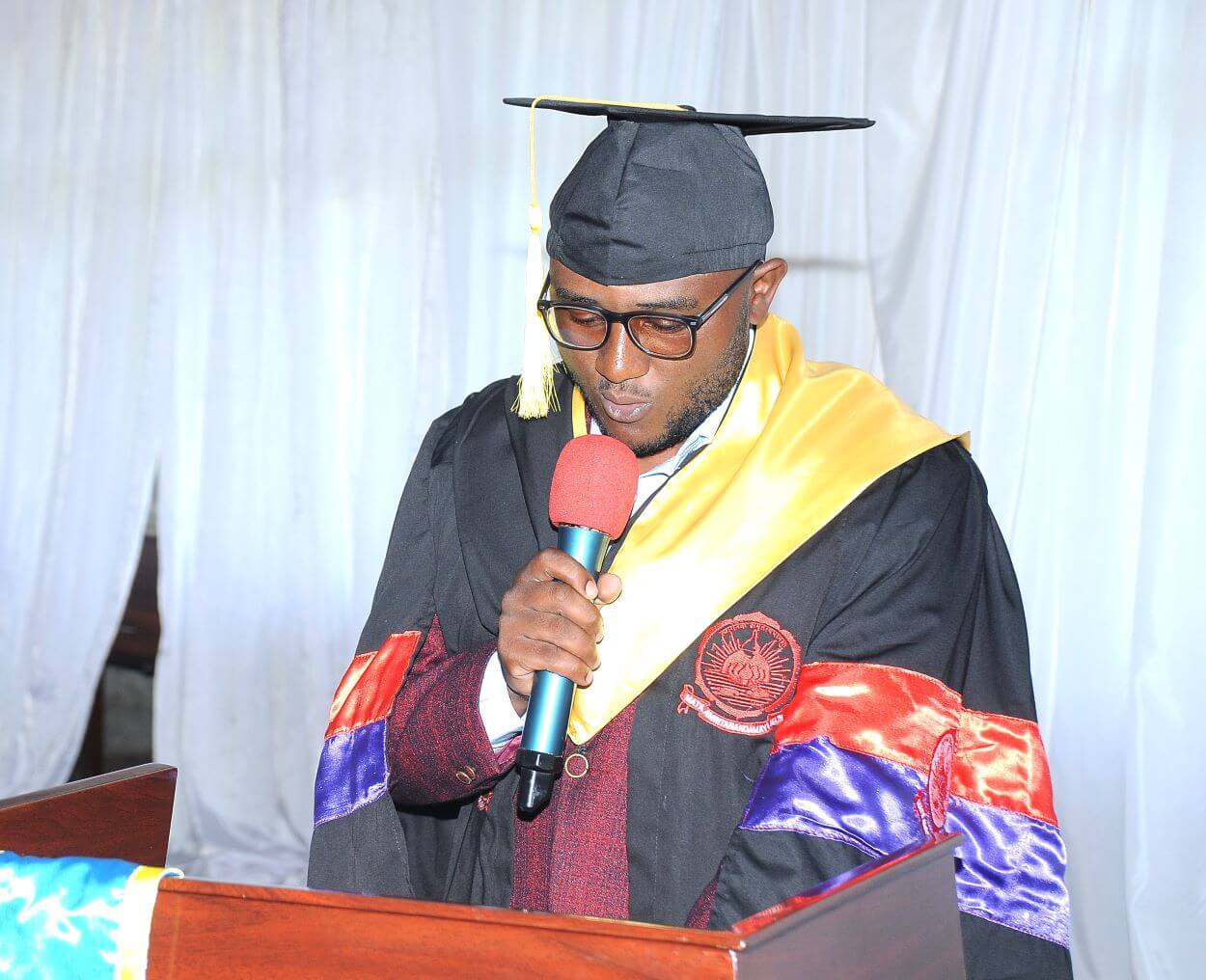
The graduates’ remarks underscored the significance of international collaboration, personal perseverance, and the transformative power of education, marking the ceremony not only as a celebration of academic achievement but also of resilience and shared vision for the future.
Find the details about this project and graduates in the booklet attached.
Trending
-

 General1 week ago
General1 week agoPress Statement: Makerere University Congratulates Former Staff and Students on Successful Election to Public Office
-

 General1 week ago
General1 week agoPress Statement: Makerere 76th Graduation Ceremony
-

 General1 week ago
General1 week agoRe-Advert for the Position of the Second Deputy Vice Chancellor
-

 Health3 days ago
Health3 days agoCall For Applications: MakNCD Masters and PhD Training Opportunities
-

 General2 weeks ago
General2 weeks agoMak Hosts NCHE Competence-Based Education Standards Validation Meeting
